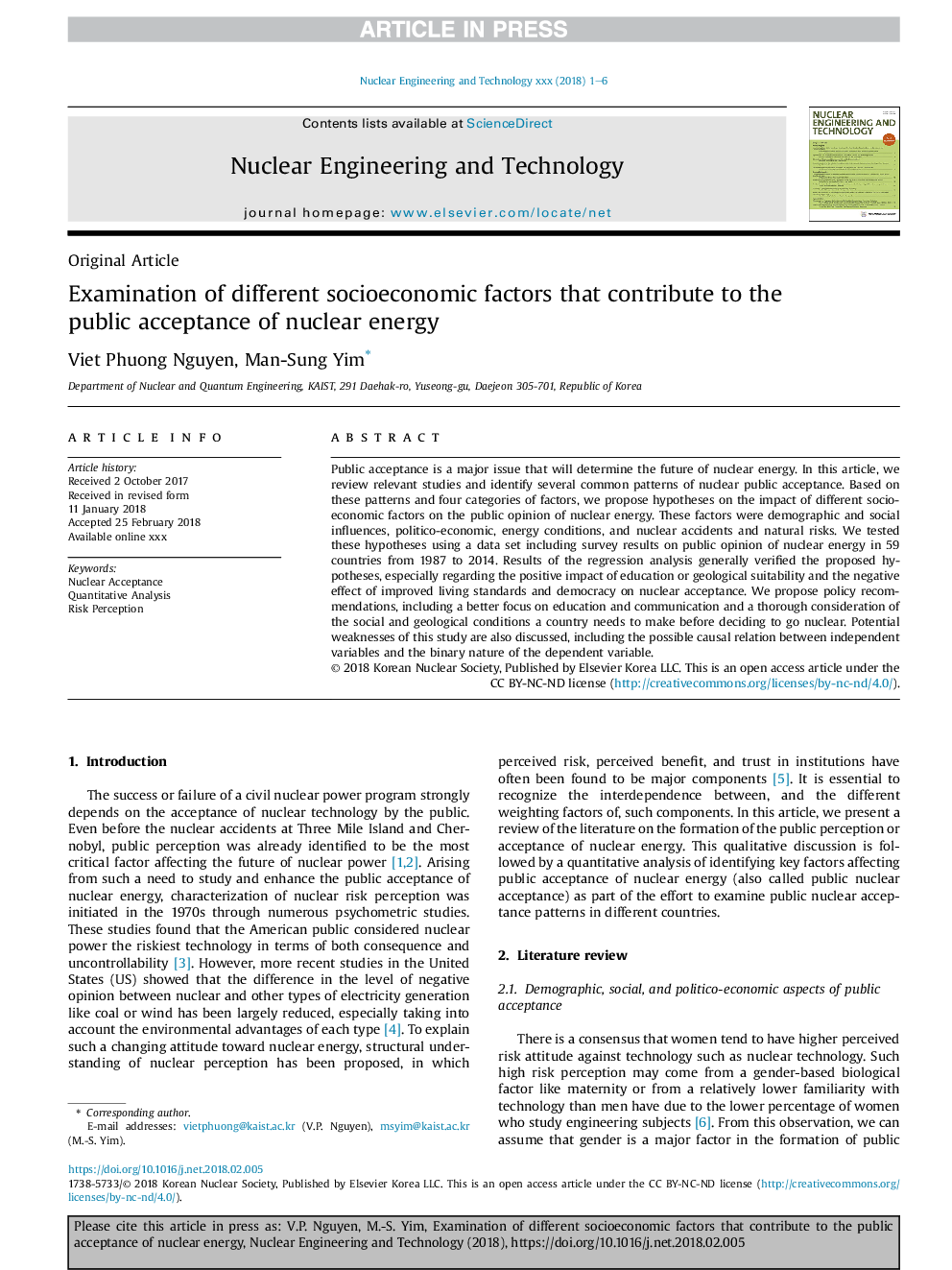| Article ID | Journal | Published Year | Pages | File Type |
|---|---|---|---|---|
| 8083716 | Nuclear Engineering and Technology | 2018 | 6 Pages |
Abstract
Public acceptance is a major issue that will determine the future of nuclear energy. In this article, we review relevant studies and identify several common patterns of nuclear public acceptance. Based on these patterns and four categories of factors, we propose hypotheses on the impact of different socioeconomic factors on the public opinion of nuclear energy. These factors were demographic and social influences, politico-economic, energy conditions, and nuclear accidents and natural risks. We tested these hypotheses using a data set including survey results on public opinion of nuclear energy in 59 countries from 1987 to 2014. Results of the regression analysis generally verified the proposed hypotheses, especially regarding the positive impact of education or geological suitability and the negative effect of improved living standards and democracy on nuclear acceptance. We propose policy recommendations, including a better focus on education and communication and a thorough consideration of the social and geological conditions a country needs to make before deciding to go nuclear. Potential weaknesses of this study are also discussed, including the possible causal relation between independent variables and the binary nature of the dependent variable.
Keywords
Related Topics
Physical Sciences and Engineering
Energy
Nuclear Energy and Engineering
Authors
Viet Phuong Nguyen, Man-Sung Yim,
